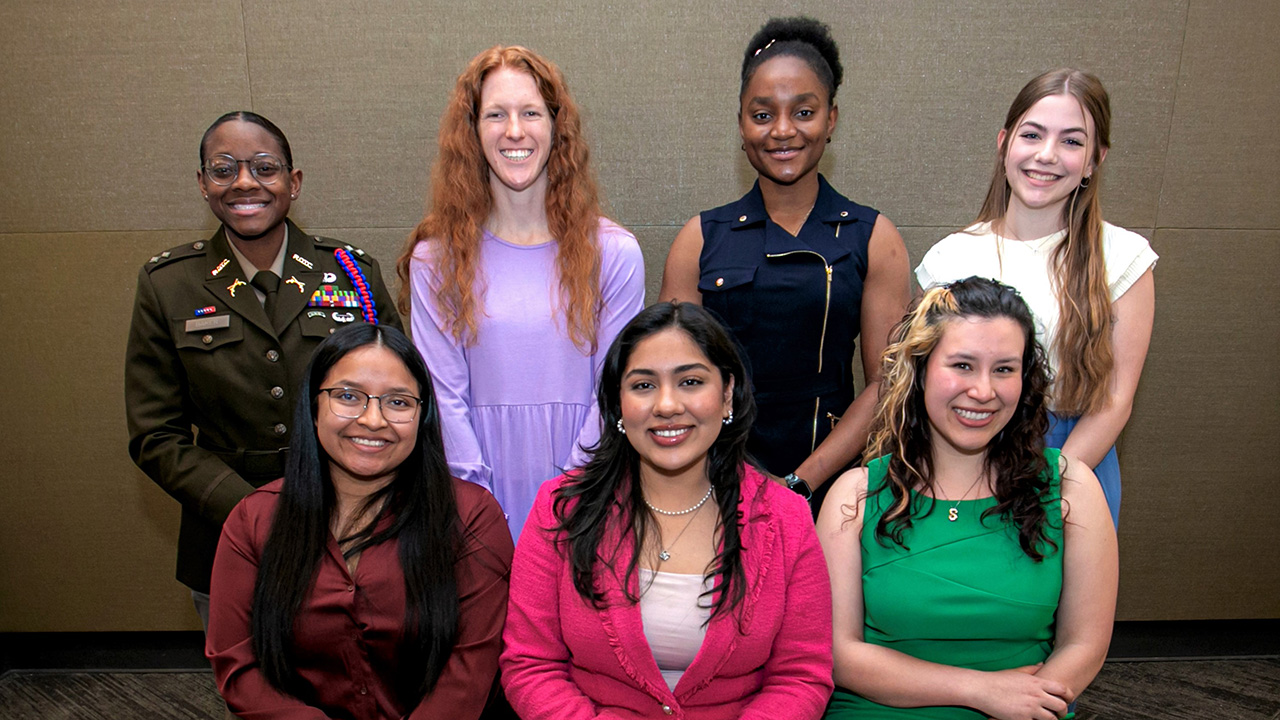GenCyber Warrior Academy attracts high schoolers to computer science

Article By: Staff
Learning to hack into a car, control a robot, program a drone, and write computer code are just a few of the activities high school students will master during the GenCyber Warrior Academy in June at the University of North Georgia (UNG).
More than 170 national and international students applied for 40 positions to the highly selective 10-day summer program. Of those accepted, 20 were boys and 20 were girls.
Dr. Bryson Payne, professor of computer science in UNG's Mike Cottrell College of Business, said the gender split is deliberate for two reasons. First is that the National Security Agency, which sponsors and funds the summer program, seeks out diverse participants, including minority and female applicants.
"Secondly, we have learned that when we have an equal number of boys and girls, it contributes to a positive campus environment and creates a unique culture among the students," said Payne, who is the director of UNG's Center for Cyber Operations Education.
The cybersecurity and computer science instructors reflect that diversity as well. Of the six UNG faculty members teaching in the GenCyber Warrior Academy, three are women. They are Diane Stephens, lecturer of computer science and information systems; Dr. Mingyuan Yan, assistant professor of computer science; and Dr. Sara Sartoli, assistant professor of computer science. Yan and Sartoli are two of the newest additions to the academy while Stephens participated last year.
"I had a blast last summer," Stephens said. "These kids wanted to learn. It made me want to come up with new things to teach them. It was a great experience."
Yan said she hopes to glean some energy from students during the program and use it to engage them in the computer science and cybersecurity fields.
"The high school curriculum is different. So I will try to get to know the high school students and know how computer science is taught at the high school level," she said. "Then I can know what I can teach them to attract them to computer science."
 |
|
GenCyber Warrior Academy's purpose is to expose students to cybersecurity and computer science programs to spark interest in the field and introduce women to the male-dominated industry. |
Payne said GenCyber Warrior Academy's purpose is to expose students to cybersecurity and computer science programs to spark interest in the field and introduce women to the male-dominated industry. While computer science research jobs are estimated to grow by 19 percent by 2026, female college students only earn 18 percent of computer science bachelor's degrees in the U.S., according to the Bureau of Labor Statistics.
"We want to see more women in computer and cybersecurity careers," Payne said. "And the GenCyber Warrior Academy exposes the brightest girls to those opportunities."
Young girls also need to see and be inspired by female computer science teachers.
"If girls don't see women teaching in the field, they don't think it is for them," Stephens said. "If you see them, you can see yourself."
Plenty of careers are available in computer science. About 350,000 U.S. cybersecurity positions were unfilled in 2017 because of a lack of qualified candidates, according to CyberSeek, a project supported by the National Initiative for Cybersecurity Education, which is a program of the U.S. Department of Commerce. Payne explained the GenCyber Warrior Academy's mission is to produce the next generation of cybersecurity leaders to fill those positions.
UNG is designated as a National Center of Academic Excellence in Cyber Defense Education, and has supported the academy's expansion and helped grow the university's computer science and cybersecurity programs.
It also creates a natural pipeline for students to follow. High school students are introduced to computer science through the GenCyber Warrior Academy at UNG, earn a degree at UNG and then go on to find a career in the field.
"And there are jobs in computer science in north Georgia," Payne said.



